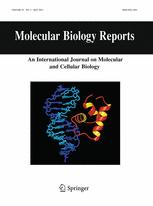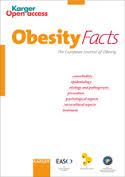 After reading too many papers that either are not reproducible or contain statistical errors (or both), the American Statistical Association (ASA) has been roused to action. Today the group released six principles for the use and interpretation of p values. P-values are used to search for differences between groups or treatments, to evaluate relationships between variables of interest, and for many other purposes. But the ASA says they are widely misused. Here are the six principles from the ASA statement: Continue reading We’re using a common statistical test all wrong. Statisticians want to fix that.
After reading too many papers that either are not reproducible or contain statistical errors (or both), the American Statistical Association (ASA) has been roused to action. Today the group released six principles for the use and interpretation of p values. P-values are used to search for differences between groups or treatments, to evaluate relationships between variables of interest, and for many other purposes. But the ASA says they are widely misused. Here are the six principles from the ASA statement: Continue reading We’re using a common statistical test all wrong. Statisticians want to fix that.
Category: statistics
High-profile critic slams Nature letters about dinosaur growth following corrections
 Authors of a pair of letters in Nature that concluded dinosaurs reached their full size surprisingly quickly are standing by their conclusions, despite challenges from a high-profile critic.
Authors of a pair of letters in Nature that concluded dinosaurs reached their full size surprisingly quickly are standing by their conclusions, despite challenges from a high-profile critic.
In the letters, researchers led by first author Gregory M. Erickson, a paleobiologist at The Florida State University, concluded that massive dinos grew fast — for example, a 5.5 ton T-Rex could reach skeletal maturity in just two decades. However, when Nathan Myhrvold tried to reanalyze the data, he couldn’t replicate the results. The authors have issued corrections to address the small mistakes unearthed by Myhrvold’s analysis, but argue he couldn’t replicate their results because they hadn’t fully explained their methodology.
After Myhrvold attempted to replicate the findings of maximum size and growth rate for several papers, he found issues in many, including the two Nature letters, according to a press release on Myhrvold’s website: Continue reading High-profile critic slams Nature letters about dinosaur growth following corrections
Paper on narcissistic CEOs earns big correction
 It may not be much of a surprise that narcissistic CEOs of pharmaceutical companies will make bold choices, such as adopting radically new technology. That idea remains true, despite a lengthy correction to a paper that supports it.
It may not be much of a surprise that narcissistic CEOs of pharmaceutical companies will make bold choices, such as adopting radically new technology. That idea remains true, despite a lengthy correction to a paper that supports it.
The paper, “CEO Narcissism, Audience Engagement, and Organizational Adoption of Technological Discontinuities,” in Administrative Science Quarterly, found support for the following hypothesis:
Continue reading Paper on narcissistic CEOs earns big correction
Drunk rats paper wasted by “significant statistical errors”, among other issues
 Authors from Xinxiang Medical University in Weihui, China, are retracting a 2014 paper in Molecular Biology Reports because… well, because lots of things.
Authors from Xinxiang Medical University in Weihui, China, are retracting a 2014 paper in Molecular Biology Reports because… well, because lots of things.
The researchers exposed nine rats to acute levels of alcohol then compared them to unexposed mice rats, noting differences in gene expression and molecular pathways.
But no one is toasting these findings anymore. Here are the details behind the retraction, courtesy of the notice:
Continue reading Drunk rats paper wasted by “significant statistical errors”, among other issues
When should a paper be retracted? A tale from the obesity literature
 In our line of work, we see it all — mega-corrections that don’t quite rise to the level of retraction, letters to the editor that point out seemingly fatal flaws in papers that remain untouched, and studies retracted for what seem like minor reasons. It can make you wonder what makes a paper worthy of a retraction. A recent case in an obesity journal may not provide a definitive answer, but it gives us a lot to chew on.
In our line of work, we see it all — mega-corrections that don’t quite rise to the level of retraction, letters to the editor that point out seemingly fatal flaws in papers that remain untouched, and studies retracted for what seem like minor reasons. It can make you wonder what makes a paper worthy of a retraction. A recent case in an obesity journal may not provide a definitive answer, but it gives us a lot to chew on.
Here’s the story: In September 2013, Rosely Sichieri and a colleague from the State University of Rio de Janeiro submitted an article to Obesity Facts, “Unbalanced Baseline in School-Based Interventions to Prevent Obesity: Adjustment Can Lead to Bias?” The article examined statistical issues in randomized controlled trials of school-based weight loss programs. Peer reviewers said the paper needed major revisions before it could be accepted; the authors revised the paper enough in a second draft, submitted in November 2013, that the original reviewers accepted it. The paper was published in June 2014.
Then, in September 2014, a group of authors including David Allison of the University of Alabama, Birmingham, and colleagues from Clemson, Thomas Jefferson, and the University of Minnesota, wrote a critical letter that was published in the journal in April. The letter, according to a just-published editorial: Continue reading When should a paper be retracted? A tale from the obesity literature
Stats error has chilling effect on global warming paper
 It turns out a 2014 paper that found a surprising pattern of plant migration in response to global warming was not so surprising after all — it’s been retracted by the authors due to a mistake in the statistical analysis.
It turns out a 2014 paper that found a surprising pattern of plant migration in response to global warming was not so surprising after all — it’s been retracted by the authors due to a mistake in the statistical analysis.
Most studies on migrating populations have found that species around the globe move north to escape the rising temperatures. But the authors of the 2014 paper in Global Change Biology found the opposite — according to their analysis, many plant species in Western North America had been migrating south, toward warmer climates.
The lead author Melanie Harsch told Science in 2014 that the team had been suspicious of the analysis, and so ran it twice: Continue reading Stats error has chilling effect on global warming paper
Stats mistake crashes bike accident paper

Two researchers at the University of Saskatchewan in Canada have retracted a paper that came to fairly common-sense conclusions about bike safety.
In the September 2014 issue of the Journal of Transport and Health, the authors concluded that slippery road surfaces, night-time biking, and higher speed limits were all associated with higher probabilities of a bicycle accident.
Despite these logical conclusions, the authors discovered a statistical error that “would significantly change the discussion,” according to the retraction notice.
Dipping into history: An 87-year-old retraction in a statistics journal
 We came across a rather long-toothed retraction in the Journal of the American Statistical Association, which represents a case of doing the right thing (similar to that involving the apparent first-ever English language retraction from 1756, about which we wrote in 2012).
We came across a rather long-toothed retraction in the Journal of the American Statistical Association, which represents a case of doing the right thing (similar to that involving the apparent first-ever English language retraction from 1756, about which we wrote in 2012).
The 1927 notice came in the form of a letter by C. H. Whelden Jr., who was for a time the chief statistician for the American National Red Cross, referencing his 1926 article in the JASA,”The Trend-Seasonal Normal in Time Series:”
Continue reading Dipping into history: An 87-year-old retraction in a statistics journal
Editor inadvertently spurns reviewers; retraction ensues
 The Journal of Multivariate Analysis has retracted a paper it was never meant to publish — a problem, it seems, of multivariate analyses.
The Journal of Multivariate Analysis has retracted a paper it was never meant to publish — a problem, it seems, of multivariate analyses.
The article, titled “Regression estimation with locally stationary long-memory errors,” came from a pair of statisticians in Chile, Wildredo Palma and Guillermo Ferreira.
It appears that the article did not pass muster with the reviewers, but that the editor somehow missed the message. As the retraction notice explains: Continue reading Editor inadvertently spurns reviewers; retraction ensues
Another correction for Rui Curi, whose legal threats helped force shutdown of Science Fraud site
 The Journal of Endocrinology has run a correction for a paper by Rui Curi, the Brazilian scientist whose lawyers threatened Science-Fraud.org after the site ran a number of posts critical of Curi’s work.
The Journal of Endocrinology has run a correction for a paper by Rui Curi, the Brazilian scientist whose lawyers threatened Science-Fraud.org after the site ran a number of posts critical of Curi’s work.
Here’s the notice for “Non-esterified fatty acids and human lymphocyte death: a mechanism that involves calcium release and oxidative stress”: Continue reading Another correction for Rui Curi, whose legal threats helped force shutdown of Science Fraud site